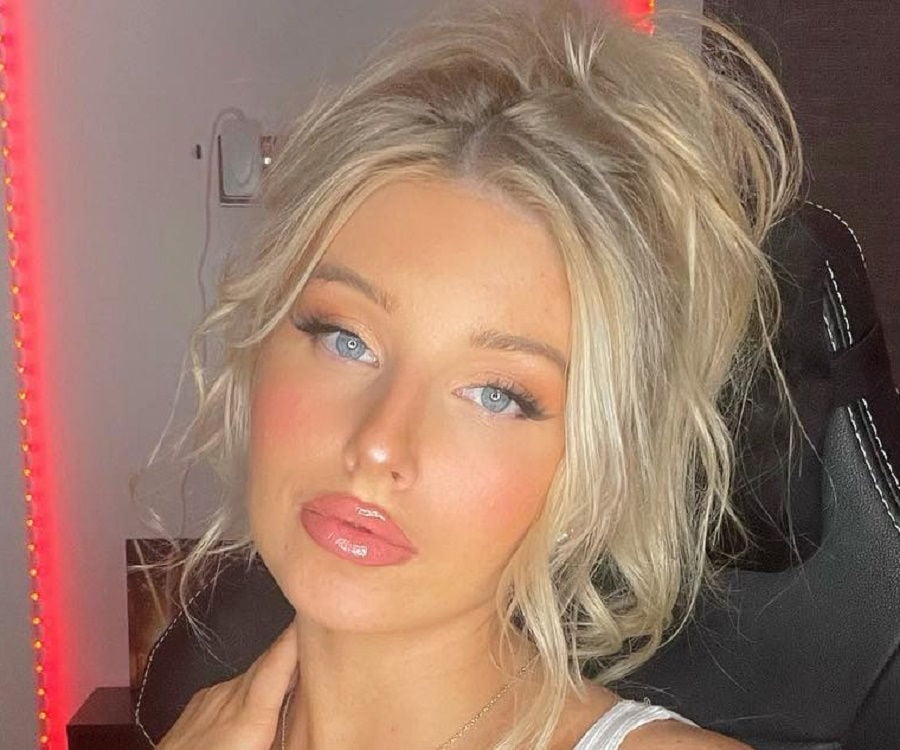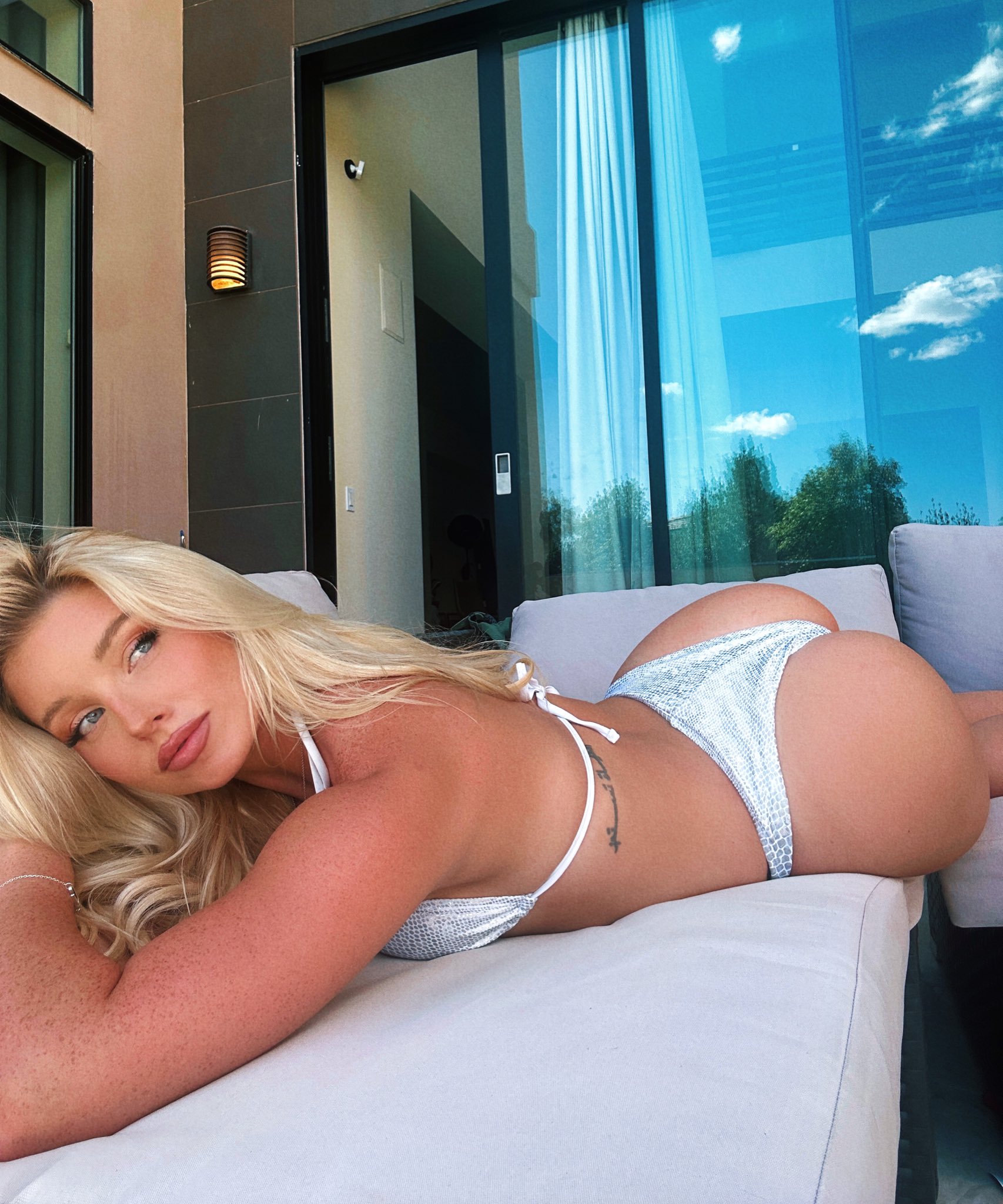Charlotte Parkes: OnlyFans Leaks & Content - What You Need To Know
Is the digital landscape of fame a double-edged sword, where popularity often walks hand-in-hand with the risk of exposure? The recent online attention surrounding Charlotte Parkes, a prominent figure in the content creation sphere, exemplifies this modern paradox.
The world of online content creation, particularly on platforms like OnlyFans, has become a vibrant and, at times, volatile space. Creators like Charlotte Parkes, a British model, Youtube star, Instagram star, and TikTok star, have cultivated substantial followings, attracting both dedicated fans and, unfortunately, unwanted attention. The rise of such personalities inevitably brings with it a mix of admiration, scrutiny, and the potential for privacy breaches. This article aims to explore the complexities surrounding Charlotte Parkes, examining the impact of leaked content, the ethical considerations at play, and the responses from fans and industry observers.
| Category | Details |
|---|---|
| Full Name | Charlotte Parkes |
| Known For | British model, YouTube star, Instagram star, TikTok star, and OnlyFans content creator |
| Date of Birth | (Information not publicly available) |
| Nationality | British |
| Social Media Presence |
|
| Career Highlights |
|
| OnlyFans Presence | Active, with content accessible through paid subscriptions. |
| Controversies/Issues |
|
| Reference Website | Famous Birthdays |
The digital realm offers a unique platform for individuals to build a brand, connect with fans, and monetize their creativity. Charlotte Parkes has leveraged this opportunity, amassing a substantial following across multiple platforms, including TikTok (where she has garnered over 35.6 million likes) and Instagram. She gained early fame by sharing prank and gaming content which resonated with a young and engaged audience. As her popularity grew, so did her reach, extending to platforms like OnlyFans, where creators offer exclusive content to paying subscribers. This content creation avenue is where the complexities of her situation truly come into focus.
The establishment of an OnlyFans account often represents a new level of engagement between a creator and their audience. It allows for a more intimate connection, offering fans exclusive content and the opportunity to directly support the creator. However, this level of intimacy also introduces vulnerabilities. The rise of leaked content, where private or exclusive material is shared without the creator's consent, has become a significant issue. These leaks often circulate widely, impacting the creator's privacy, reputation, and financial interests.
The emergence of alleged "leaks" involving Charlotte Parkes has sparked a range of reactions. While some fans have expressed support for the creator and condemned the breach of privacy, others have engaged in discussions about the ethics of unauthorized content sharing. The response underscores the complex relationship between creators and their audience, where the line between support and exploitation can sometimes become blurred. It also highlights the legal and ethical grey areas within the digital landscape.
Several websites and online forums have been known to host leaked content. These platforms often operate in legal grey areas, and the content shared on them can violate copyright laws and the privacy rights of the individuals involved. The easy availability of such content poses significant challenges to content creators. The distribution of leaks can undermine their ability to control their image, potentially leading to financial losses and reputational damage. The existence of such sites also brings ethical implications into question, as it normalizes the sharing of content that was not intended for public distribution.
The financial implications of leaked content are also significant. Creators rely on platforms like OnlyFans to monetize their work and directly interact with their subscribers. Leaks can significantly decrease the value of subscriptions, as fans may opt to view content for free rather than pay. This can undermine the creators revenue streams and impact their ability to continue producing the content that their fans enjoy.
The ethical dimensions of these leaks are also crucial. The unauthorized sharing of content represents a violation of privacy. It also disregards the creators agency and control over their image and intellectual property. The act of sharing content without consent can be considered a form of exploitation, especially when the individuals involved have not agreed to the content's public distribution.
The legal landscape surrounding leaked content is also complex. Copyright laws may apply to some leaked material, but it can be difficult to enforce these rights across different jurisdictions. Moreover, the speed and scale at which leaked content can spread online makes it challenging to remove it from all platforms. The lack of effective legal recourse exacerbates the problem, leaving creators with limited options to protect their work and reputation.
Its crucial to distinguish between the support fans show for a creator through official channels, such as subscriptions on OnlyFans, and the consumption of leaked content. Subscribing to a creator's OnlyFans or other platforms demonstrates direct support for their work and acknowledges their right to control their content. Leaked content, on the other hand, circumvents this support system and often relies on the exploitation of a creator's privacy.
The discussion surrounding Charlotte Parkes and the leaked content also involves an examination of fan engagement. The rise of social media and content platforms has allowed for a new form of parasocial interaction between celebrities and their fans. This engagement often blurs the lines of reality, creating a sense of familiarity and intimacy. However, it also presents challenges, as the expectation of access can sometimes be taken too far, leading to the violation of privacy.
The reactions to leaked content are varied. Some fans will condemn the breach of privacy and express support for the creator. However, others may be tempted to view the content out of curiosity. This creates a difficult ethical dilemma, where users may be torn between their desire to see the content and their understanding of the harm it causes the creator. This dichotomy underscores the need for a broader conversation about responsible online behavior.
The case of Charlotte Parkes serves as a microcosm of the wider challenges facing content creators in the digital age. As the online world evolves, it is crucial to address the privacy concerns that arise from leaks, explore ethical implications, and develop legal frameworks that protect creators. The focus must remain on the protection of privacy, copyright, and creative control to maintain a fair and respectful digital environment. The entertainment and media industries must adapt to these changes and the need for stronger safeguards to ensure a balanced ecosystem where creators and their audience can thrive without fear of exploitation.
The conversation needs to be expanded to encompass platform accountability. Social media sites and content-sharing platforms have a responsibility to implement robust measures to prevent the spread of leaked content. These measures can range from improved content moderation to providing a clear process for creators to report and have infringing material removed. Platforms can also help educate their users about ethical considerations and the impact of unauthorized content sharing.
The issue of content leaks is by no means limited to the adult entertainment industry. The problem extends across various forms of digital content. Leaks of sensitive personal data, leaked footage from films and television shows, and private communications can also have far-reaching effects. The increasing interconnectedness of the internet amplifies the impact of such incidents, raising the need for greater awareness and protection of digital privacy.
The debate also extends into the realm of media literacy. Educating individuals about the ethical and legal issues related to digital content is essential. This education should encompass the importance of respecting intellectual property, the potential harm caused by leaks, and the role of users in promoting responsible online behavior. By fostering a culture of respect for privacy, the media industry can contribute to a safer and more ethical digital environment.
As digital platforms continue to evolve, so too will the ways in which content creators seek to engage with their audiences and monetize their work. Embracing a proactive approach that addresses the challenges of privacy and online security will be vital. The response must prioritize the rights of creators, promote ethical behavior, and foster a digital landscape that supports creativity and innovation. The future of online content creation hinges on these critical considerations.
In the case of Charlotte Parkes, and other content creators, the response must combine strategies. Strong measures to report and remove leaked content, clear communications to supporters about the value of supporting them through official channels, and engaging in public conversations about the ethical implications of content leaks. These conversations are an important step in developing responsible and ethical practices, not only for the creators themselves but also for their fanbase.
The digital world is transforming quickly, and this means there is an ongoing need for a community effort to ensure that everyone, from creators to fans, is both informed and protected. The lessons learned from the issues surrounding Charlotte Parkes can help shape a safer, fairer, and more respectful online environment. Only then can the potential of the digital space be fully realized.



